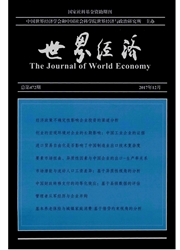

 中文摘要:
中文摘要:
本文利用UL模型和2007年住户调查数据,分析了政府转移性支出对居民收入分配的影响。测算结果表明:政府转移性支出可使居民整体、城镇居民和农村居民的收入不平等程度分别缩小10.53%、21.1%和2.37%,公平收入分配效果远高于个人所得税;政府转移性支出对居民收入分配的纵向效应明显、横向效应微弱同时再排序效应较强;由于中国社会保障统筹程度低,再排序效应在较大程度上抵消了转移性支出的再分配效应;政府转移性支出对中等收入群体的收入再分配效果最为明显。为更好地发挥政府转移性支出的收入再分配效应,政府应尽快推动社会保障制度标准的城乡统一和地区统一。
 英文摘要:
英文摘要:
The government's transfer payment will remarkably affect the income distribution of residents. By using the UL model and the China household survey data, this paper estimates the effect of transfer payment by China's government on household's income realloeation. The results show that the government's transfer payment can reduce the income inequality of residents by 10. 53%, with a decrease of 21.1% for urban residents and 2. 37% for rural residents, bringing a much better outcome than what the personal income tax does. Meanwhile, the vertical redistributive effect of government's transfer payment is quite significant and the re-ranking effect is relatively large, while the horizontal effect is comparatively weak. Moreover, the middle income group experiences the most redistributive effect of government's transfer payment. Due to the low level of coordination in China's social security system, the redistributive effect of government's transfer payment is largely offset by the re-ranking effect. These conclusions imply that, in order to make government's transfer payment play a better role in the income redistribution, the government should accelerate the integration of social security standards between urban and rural areas and among different districts.
 同期刊论文项目
同期刊论文项目
 同项目期刊论文
同项目期刊论文
 期刊信息
期刊信息
